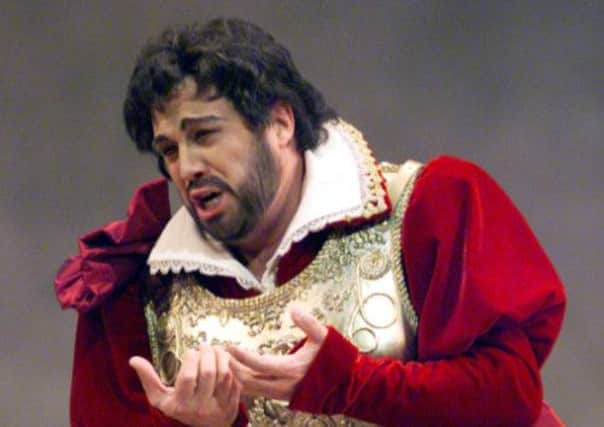Countertenor David Daniels heads for Edinburgh


There’s a concert next weekend in Edinburgh’s Greyfriars Kirk called Let There be Light. It’s intended as a centennial celebration of Dunfermline-born tycoon Andrew Carnegie, though the main protagonist is pretty much in the dark as to what the Carnegie connection is.
Not that it matters, because he is American countertenor David Daniels, supported by Scots-born accompanist Iain Burnside. And believe me; you don’t need a reason to hear Daniels. He’s a king among his breed – sought worldwide for the many operatic roles he has made his own, and for the refreshing new light he has shed on the recital capabilities of the hybrid countertenor voice.
Advertisement
Hide AdWhen I spoke to him a couple of weeks ago he was in Barcelona, starring in a Spanish revival of Sir David McVicar’s irreverent Brussels production of Handel’s Agrippina. The world’s opera theatres are where you’ll mostly find him, even in operas especially written for his hugely expressive voice, such as the title role of Oscar Wilde in Theo Morrison’s Oscar, co-authored by former Scottish Opera boss John Cox, and premiered last summer in Santa Fe.
“Opera has always been the centrepiece of my work,” Daniels says. “And I have always said that new music is going to be essential for the evolution of the countertenor voice to continue and to have staying power.”
But it’s in the recital context that Scottish audiences have mostly enjoyed Daniels, both in Glasgow and at the Edinburgh Festival. And he’s delighted to be coming back next week to present another one.
And the Carnegie link? “I only found out about that recently. We’re doing some Brahms, Reynaldo Hahn, some American folk songs arranged by Steve Mark Kohn, professor at the Cleveland Institute of Music.” It is repertoire, he explains, that apparently featured among Carnegie’s favourite music, and also includes songs by Theo Morrison and by Steven Foster, composer of fireside favourites My Old Kentucky Home and Jeannie with the Light Brown Hair.
How strange a mix for the stylised voice type we normally associate with English cathedral choirs or Renaissance and Baroque opera? Yet, as Daniels will surely prove, there’s very little nowadays that the modern countertenor won’t have a stab at.
Opportunities have changed since the earlier revivalist pioneers of a generation back, he says. “For careers like my own, the bulk of the work is in the big opera houses. That wasn’t the case 30 years ago. But I wouldn’t say that today’s countertenor voice is any different. It’s not an evolution in the way we sing. We’re just not afraid to tackle music that interests us.”
Advertisement
Hide AdAs a student at the University of Michigan in the early 1990s, Daniels, having changed from studying as a tenor, was already exploring unconventional countertenor repertoire. “For my graduate recital in 1992, yes there was Bach and Purcell. But I also included 19th century German and French song. More importantly, I realised how important it would be to develop a recital career alongside the inevitable operatic one.”
The problem nowadays, he says, “is not so much the lack of music accessible to the voice, but the fact that the song recital itself is suffering a decline. I think times are hard for the song recital, more so than for opera, where lavish productions satisfy today’s desire for instant gratification. For a recital, the audience has to sit and think. That’s not what today’s social media society wants, so we singers have to play along, but still find ways to keep the integrity of the music intact.”
Advertisement
Hide AdDaniels’ experiments have included a recent performance in Princeton, New York, of three mainstream song cycles sung to simultaneous choreography by six members of the Mark Morris Dance Group. “It was wonderfully done, but that kind of thing has to be thought through very carefully,” he says.
Next Sunday’s Edinburgh recital will stick to conventional delivery, but with the amenable Iain Burnside at his side, Daniels will inevitably weave his vocal magic and charm. As the New York Times claimed following Daniels’ 2002 Carnegie Hall debut: “There was a sense of occasion in the air, and he didn’t disappoint. This was a compelling, even exhilarating recital.” Ah, finally, a tangible Carnegie connection.
David Daniels and Iain Burnside present Let there be Light at Greyfriars Kirk, Edinburgh, on 8 December, tel: 0131-668 2019 www.thequeens-hall.net